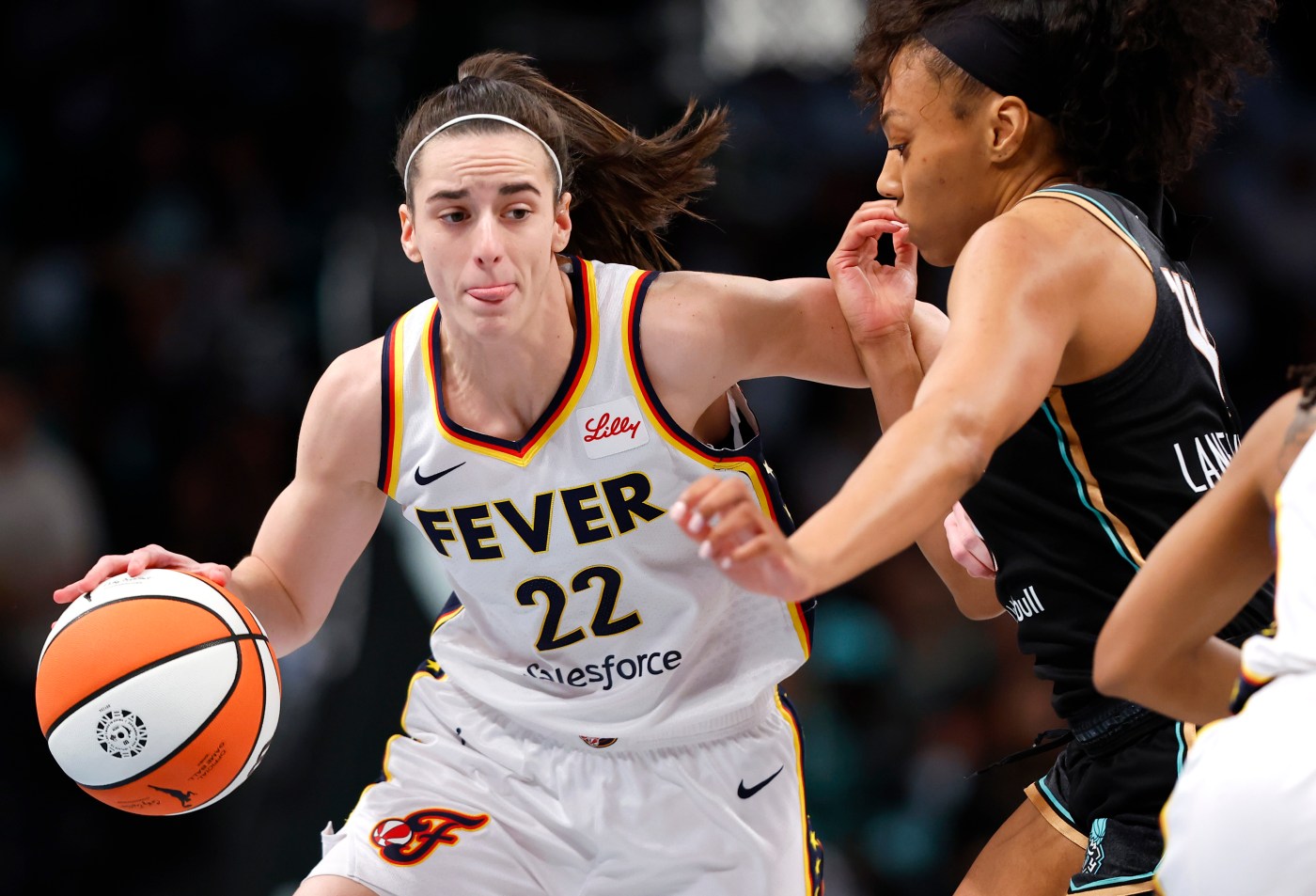
Lowry: Caitlin Clark doesn’t deserve the hate
By all means, let’s take a star who is drawing new attention to a women’s sports league that could definitely use it, and make her into a hate figure.
If her critics have their way, this will be the fate of Caitlin Clark.
Of course, Clark is the former University of Iowa basketball legend who has now embarked on her rookie season in the WNBA with the Indiana Fever, generating new interest in a league that has survived for almost two decades, but hasn’t set the world on fire.
The other WNBA players don’t like Clark very much, an animosity exemplified by a flagrant foul against Clark by a player with the Chicago Sky recently. The body check of Clark was worthy of an NHL game, and her former LSU rival now on the Sky, Angel Reese, cheered the takedown lustily.
As a hyped newbie, Clark is inevitably in for some rough treatment from longer-tenured opponents, but she shouldn’t get abused for the offense of being a bright new star — or for, according to some detractors, being too white or attractive.
On the “The View,” co-anchor Sunny Hostin accused Clark of benefiting from white privilege, pretty privilege, tall privilege and straight privilege.
That’s a lot of alleged privilege, and still leaves out the most important — shooting- and passing-ability privilege.
If Caitlin Clark were a pedestrian player, no one would know her name. It’s her ability to make long-distance “logo threes” and her extraordinary pass-making skills that make her exceptional.
The sports commentator Jemele Hill has complained that Clark’s “race and her sexuality played a role in her popularity,” and that she’s symptomatic of how black players are “erased.” A player for the Las Vegas Aces, A’Ja Wilson, has said much the same thing.
These interpretations are non-falsifiable. Testing the proposition would require a black LGBQT+ player becoming the highest-scoring college basketball player of all time — in both the men’s and women’s game — and averaging an insane 31.6 points per game in her final season. Since only Clark has achieved this, there’s no way to make a comparison.
For anyone who values the WNBA, it is self-sabotaging to treat Clark as a white interloper. She’s an incredible draw and an invariably courteous emissary for the game. She has inspired girls around the country and patiently signed their signs, jerseys and sneakers.
Her Iowa team didn’t just routinely sell out at home, but sold out on the road against teams that were otherwise meager draws. The Caitlin Clark effect led to the women’s college championship game this year easily drawing more viewers than the men’s championship.
It’s not as though the WNBA is in a position to turn its back on a potential generational talent. If the league has been making gains, it still badly lags the NBA. The clinching game of the WNBA championship last year averaged 889,000 viewers. The clinching game of the NBA finals averaged 13 million viewers.
Clark isn’t going to make up this disparity. Anything to draw more people to the game should be profoundly welcome, though.
Rich Lowry is editor in chief of National Review


